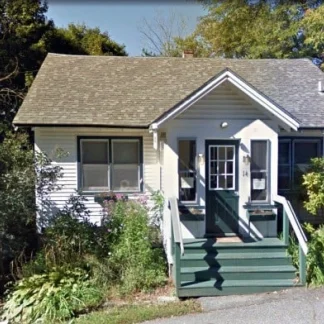Health Care and Rehabilitation Services
Health Care and Rehabilitation Services is a private rehab located in Hartford, ...
Headrest - Residential is a non-profit rehab located in Lebanon, NH. Headrest specializes in the treatment of substance use by providing effective programs and treatment regardless of ability to pay.
Headrest provides an ideal environment for those recovering from substance use. It is composed of a caring and qualified that helps the people that need it.
The Lebanon-based nonprofit addiction treatment provider that also operates a crisis hotline. Has started a new program called “Headrest Opportunities for Work,” or HOW, to serve people in its 90-day inpatient treatment program on Church Street, outpatient clients, and other community members, not only those in recovery from alcohol and drug addictions.
Contact us for more information: (603) 448-4872

Connect with Headrest - Residential by calling their admissions team directly.
(603) 448-4872 Website Get DirectionsResearch clearly demonstrates that recovery is far more successful and sustainable when loved ones like family members participate in rehab and substance abuse treatment. Genetic factors may be at play when it comes to drug and alcohol addiction, as well as mental health issues. Family dynamics often play a critical role in addiction triggers, and if properly educated, family members can be a strong source of support when it comes to rehabilitation.
Group therapy is any therapeutic work that happens in a group (not one-on-one). There are a number of different group therapy modalities, including support groups, experiential therapy, psycho-education, and more. Group therapy involves treatment as well as processing interaction between group members.
Life skills trainings involve all the skills a person must have in order to function successfully in the world. These include time management, career guidance, money management, and effective communication. Truly successful addiction recovery is based on the ability to not only live substance-free, but to thrive. Life skills teaches the practical necessities of functioning in society, which sets clients up for success in life, and therefore sobriety.
Group therapy is any therapeutic work that happens in a group (not one-on-one). There are a number of different group therapy modalities, including support groups, experiential therapy, psycho-education, and more. Group therapy involves treatment as well as processing interaction between group members.
Life skills trainings involve all the skills a person must have in order to function successfully in the world. These include time management, career guidance, money management, and effective communication. Truly successful addiction recovery is based on the ability to not only live substance-free, but to thrive. Life skills teaches the practical necessities of functioning in society, which sets clients up for success in life, and therefore sobriety.
Life skills trainings involve all the skills a person must have in order to function successfully in the world. These include time management, career guidance, money management, and effective communication. Truly successful addiction recovery is based on the ability to not only live substance-free, but to thrive. Life skills teaches the practical necessities of functioning in society, which sets clients up for success in life, and therefore sobriety.
Health Care and Rehabilitation Services is a private rehab located in Hartford, ...
Dartmouth Hitchcock Psychiatric – Addictions is a private rehab located in Leban...
The ROAD To A Better Life Program was established to help individuals free thems...
Groups is private healthcare company providing outpatient treatment for opiate a...